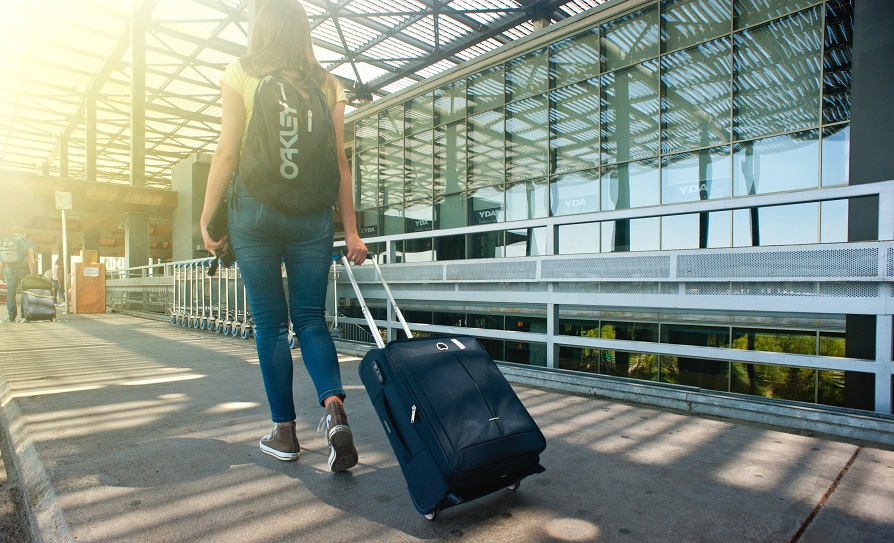Foreign Workers, Study Permit Holders Still Able to Enter Canada During COVID-19 Crisis
Less than one week after closing Canada’s borders to help prevent the further spread of COVID-19, the Canadian government is taking steps to ensure that some international students and foreign workers are still able to enter the country.
The federal government’s decision to close Canada’s borders to non-essential travellers made last week drew widespread concern over what would happen to foreign workers and study permit holders intending to come to Canada to work, study or live permanently.
Fortunately, though, those concerns have been somewhat dispelled as the federal government announced travel exceptions for some foreign nationals who have already committed to working, studying, or making Canada their home.
The exemptions include seasonal agricultural workers, fish and seafood workers, caregivers and all other temporary foreign workers, according to Immigration, Refugees and Citizenship Canada (IRCC).
“Temporary foreign workers are absolutely necessary for our farms and our agribusiness, filling over 60,000 jobs across the country,” said Agriculture Minister Marie-Claude Bibeau in response to exemptions being put in place. “Our very food security depends on them.”
According to CBC, travel exemptions will also be put in place for international students who already held study permits or had been approved for one before the border closure and travel restrictions occurred on March 18.
Furthermore, permanent resident applicants that had been approved prior to the travel restrictions but had not yet travelled to Canada will also be exempted.
However, despite the exemptions being put in place, it’s also important to note that Immigration, Refugees and Citizenship Canada is advising that anyone who falls under this exception should not be travelling right away.
Foreign nationals coming to Canada through these exemptions will be subject to screening measures before travel and must isolate for 14 days after arriving in Canada.
How COVID-19 Measures Are Affecting Asylum Seekers
While this is a commendable move from the government, it’s concerning to note that such exceptions will not be made for vulnerable refugees seeking asylum.
Along with the travel exemptions, Canada recently made the decision to turn away asylum seekers attempting to enter Canada outside official border points. Essentially, this decision blocks asylum seekers from crossing into Canada and filing refugee claims under Canada’s Safe Third Country Agreement (STCA).
For those who are unfamiliar, the STCA requires asylum seekers to make their refugee claims in the first “safe” country they step foot in (in this case either Canada or the U.S.) However, there is an exception which allows asylum seekers to make a refugee claim in the second “safe” country they arrived in, if they came through an unofficial border point.
Public Safety Minister Bill Blair told CBC that other exceptions in the STCA regarding asylum seekers attempting to enter Canada through official points of entry would also be suspended.
This means that the only asylum seekers that will be able to file a refugee claim during the ongoing COVID-19 pandemic include:
- U.S. citizens
- Stateless habitual residents of the U.S.
- Foreign national parents or guardians of a minor U.S. citizen who are accompanying them in making a claim.
- Unaccompanied foreign national minors
The government’s decision regarding refugees is highly controversial and has already been criticized by the Canadian Association of Refugee Lawyers and Amnesty International Canada, which labelled the policy as a “shameful breach of international law” that would put even more lives at risk during the COVID-19 pandemic.
Because, while the current situation in Canada and around the world is very serious and requires government action, it’s crucial that these worrisome policies and travel restrictions are not preventing vulnerable refugees fleeing dangerous situations from seeking asylum in Canada.
Share this article
Arghavan Gerami
Arghavan Gerami is the Founder and Senior Counsel at Gerami Law Professional Corporation ('PC'), a full-service immigration law firm in Ottawa, Ontario. Since 2011, Ms. Gerami has focused her practice on immigration and refugee litigation. Prior to that, Ms. Gerami worked at the Ministry of Attorney General and the Department of Justice and had the privilege of serving the Honourable Mr. Justice M. Evans at the Federal Court of Appeal on immigration and administrative law appeals. Ms. Gerami contributes to the Immigration Law Section of the Canadian Bar Association, the Canadian Association of Refugee Lawyers, and the United Nations High Commissioner for Refugees. Ms. Gerami has also published numerous journal articles and presented at various immigration and refugee law conferences and events across Canada.

